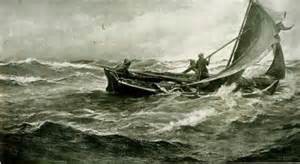Do you know someone who is on the path to destruction? Someone making the wrong choices in life and unwilling to listen to counsel—or unable to overcome addiction so they can make reasoned choices.
It’s heartbreaking to watch them self-destruct. If you’re close to the situation, you feel helpless as you watch and can do nothing to halt their steady decline.
We celebrate the fact that God gives us free will . . . until we want to take control of someone we love in order to rescue them from self-destruction. All efforts are futile. There’s nothing you can do if that person doesn’t choose to listen.
Nothing but pray, seeking God’s mercy and intervention.
There are many situations where you are helpless to fix the problem, times of sickness, financial stress, relational problems, and more. Times when you’re easily overwhelmed by the circumstances and find it difficult to keep going.
If you aren’t careful, it can affect you too. As you grieve your loss—of hopes, dreams, relationship, productivity, even life–it robs you of peace and joy. If you let it, you’ll be pulled into the vortex of the difficulty.
If you remain focused on the problem, trying to figure out what you can do and how you can help, the darkness of helplessness and hopelessness will engulf you.
Jesus said, “if your eye is bad, your whole body will be full of darkness. If therefore the light that is in you is darkness, how great is that darkness!” (Matt. 6:23). That’s what the enemy wants, for us to lose sight of the Light and walk in darkness.
Don’t let the enemy pull you down. Several simple steps will help you live in victory, even in the midst of the trial.
Jesus is the Light of the World (John 8:12), and the source of our light (Eph 5:14). Furthermore, He called us out of darkness and into His light (1 Pet. 2:9), and told us to seek Him (Mt. 6:33).
As you seek God, your eyes will be toward the light, allowing your body to be filled with light—with hope, strength, faith, peace. When your soul is weighted down, turn your eyes on Jesus to let the light in and chase away the darkness.
You can’t ignore the problem. It’s too much in your face and/or too deep in your heart. When darkness begins to invade, bringing fear, confusion, helplessness, anger, hopelessness, guilt, or . . ., run to the Light. Gaze into Christ’s marvelous face.
If you want to walk in daily victory, gaze at the Lord and glance at the problem throughout the day. Don’t give the darkness a chance to creep in. Live with you gaze on Him.
God is bigger than any problem that we might face. Give Him all your worries and cares. He has won the victory.
Taking the problem to Jesus doesn’t guarantee it will work out the way you imagine, but He will not leave you (Mt. 28:20). He will not let the burden be greater than you can stand (1 Cor. 10:13), and He will strengthen you for the journey (Ps. 31:24).
Furthermore, you can be confident that when things don’t go your way, it’s because He has purposes that are beyond our understanding (Is:55:9, Rom 8:28). When things seem overwhelming to us, later we can often see how He worked good out of the devastating trial.
Second, remember that God is bigger than the problem. Think of times when He has been faithful in your life—times when He rescued you or when he worked good out of what seemed bad. Think on the times He was faithful in the lives of Bible heroes: David and Goliath, the miracles that freed Israel from Egypt, Daniel in the lion’s den, and so forth. God is sovereign. He has power over all, and He is faithful.
Third, ask the Lord for a rhema. Ask Him to speak to you and listen for His answer through His Word. Read the Bible seeking His Word for you for NOW, the verse or the phrase that jumps off the page and speaks to you, filling you with hope. Then hold onto that Word when your faith begins to falter.
Memorize it so it becomes part of you and will be quick to come to mind. It will be your salvation.
God said, “My son, give attention to my words; Incline your ear to my sayings. Do not let them depart from your eyes; keep them in the midst of your heart; for they are life to those who find them, and health to all their flesh” (Prov. 4:20-22).
In one particular relational struggle, God told me, “Don’t return evil for evil, but give a blessing instead, for you were called that you might inherit a blessing” (1Pet. 3:8).
Another time, He said, “Fear not!” (I was terrified of what I imagined for my loved one.), “Stand still and see the salvation of the Lord, . . . for I will fight for you, and you will hold your peace” (Ex. 14:13-14). (I was worried sick about how to “fix” the situation, but God told me to be still. When I began to fret, I held onto this verse and God did fight for me. He took care of it.)
Our hope is in the Lord. Not in ourselves. Not in other people. Not in the circumstances. If darkness of helplessness or hopelessness threatens to steal your joy and peace, run to Jesus. He is our hope and the author and finisher of our faith (Heb. 12:2).
“Isaiah says: ‘There shall be a root of Jesse; And He who shall rise to reign over the Gentiles, In Him [Jesus] the Gentiles shall hope.’ Now may the God of hope fill you with all joy and peace in believing, that you may abound in hope by the power of the Holy Spirit” (Rom. 15:12-13).
 thousands of people all day long, then asking the disciples to serve them bread and fish. Afterward, they collected bushels of leftovers. Jesus then told his disciples to row to the other side of the sea while He stayed to pray.
thousands of people all day long, then asking the disciples to serve them bread and fish. Afterward, they collected bushels of leftovers. Jesus then told his disciples to row to the other side of the sea while He stayed to pray. ith us always. However, if we keep rowing harder rather than calling on Him, He might pass us by so we’ll notice Him and ask for help.
ith us always. However, if we keep rowing harder rather than calling on Him, He might pass us by so we’ll notice Him and ask for help.